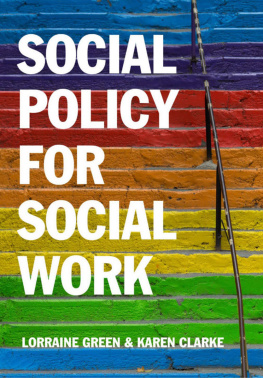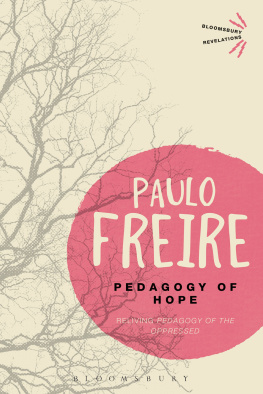SAGE Publications Ltd
1 Olivers Yard
55 City Road
London EC1Y 1SP
SAGE Publications Inc.
2455 Teller Road
Thousand Oaks, California 91320
SAGE Publications India Pvt Ltd
B 1/I 1 Mohan Cooperative Industrial Area
Mathura Road
New Delhi 110 044
SAGE Publications Asia-Pacific Pte Ltd
3 Church Street
#10-04 Samsung Hub
Singapore 049483
Lowis Charfe and Ali Gardner 2019
Chapter 6 Lindy Simpson 2019
First published 2019
Apart from any fair dealing for the purposes of research or private study, or criticism or review, as permitted under the Copyright, Designs and Patents Act, 1988, this publication may be reproduced, stored or transmitted in any form, or by any means, only with the prior permission in writing of the publishers, or in the case of reprographic reproduction, in accordance with the terms of licences issued by the Copyright Licensing Agency. Enquiries concerning reproduction outside those terms should be sent to the publishers.
Library of Congress Control Number: 2018958643
British Library Cataloguing in Publication data
A catalogue record for this book is available from the British Library
ISBN 978-1-5264-4205-5
ISBN 978-1-5264-4206-2 (pbk)
Editor: Kate Keers
Assistant editor: Talulah Hall
Production editor: Martin Fox
Copyeditor: Jane Fricker
Proofreader: Christine Bitten
Indexer: Gary Kirby
Marketing manager: Samantha Glorioso
Cover design: Wendy Scott
Typeset by: C&M Digitals (P) Ltd, Chennai, India
Printed in the UK
At SAGE we take sustainability seriously. Most of our products are printed in the UK using responsibly sourced papers and boards. When we print overseas we ensure sustainable papers are used as measured by the PREPS grading system. We undertake an annual audit to monitor our sustainability.
About the Authors
Lowis Charfeis a Senior Lecturer at the University of Central Lancashire and is the Course Leader for the BA (Hons) in Social Pedagogy, Advocacy and Participation and joint Course Leader for the MA in Social Pedagogy Leadership. Alongside teaching she has run various training sessions around social pedagogy for several local authority teams and third sector organisations. She is also the lead for the UK partner team in the Erasmus funded Massive Open On-Line Course (MOOC) project, Social Pedagogy in Europe. Headed by ThemPra, the project has developed a short online course looking at the role of social pedagogy across Europe. She also sits on the Board of Trustees for the Social Pedagogy Professional Association and supported the development of the Standards of Proficiency in Social Pedagogy and the Standards for Education and Training. Before joining the university Lowis worked as a qualified social worker in a Leaving Care Team, supporting young care leavers and her first role after qualifying was as a Youth Offending Team Officer for the Manchester YOT service.Ali Gardneris a Senior Lecturer at the University of Central Lancashire (UCLan) and is joint Course Leader for the MA in Social Pedagogy Leadership. She teaches on a number of programmes including social work and social pedagogy. Ali qualified as a social worker in 1993 and has worked predominantly with adults with a learning disability. Over this time she has developed educational resources and published books relating to personalisation, choice and control. Ali has been the Director of an Advocacy Project working with children and adults for over 10 years. Ali first became interested in social pedagogy when she joined UCLan in 2014 seeing many of the concepts applicable within her own work and value base. Ali is currently working closely with a number of local authorities and adult social care providers to develop the understanding and application of social pedagogy in working alongside adults.
About the Contributor
Lindy Simpsonis a freelance social work consultant and lecturer who provides academic teaching and practice-based training with a focus on relational participation within the statutory and voluntary child and family and mental health sectors. She currently teaches on the BA (Hons) Social Pedagogy, Advocacy and Participation degree and is an Associate Director of the Centre for Children and Young Peoples Participation at the University of Central Lancashire. She is a member of the facilitating team developing the MOOC project, Social Pedagogy in Europe. Lindy was previously a senior lecturer at UClan and prior to that she led on the development of regional inpatient CAMHS services for the NHS where she received the national award from Positive Practice in Mental Health for making a difference to mental health services. Lindy also led on the development and implementation of the Independent Review Service for Cumbria County Council and held the position of Childrens Rights Officer where she managed advocacy and participation.
Foreword Towards a Social Pedagogical Perspective on Social Work
Gabriel Eichsteller and Sylvia Holthoff, ThemPra Social Pedagogy CIC
There is little doubt that social work is one of the most important professions. By identifying and addressing the social inequalities, which originate from human interactions and social constructs, it fulfils a core function within society. If the key to understanding any society is how it treats its most disadvantaged members, then the status and focus of social work tell us a lot. Given the increasing pressures experienced by social work teams as austerity continues to exacerbate many peoples struggles, it has never been more necessary to strengthen social workers.
At the same time, there are also encouraging signs that the tide is turning, that new opportunities for radical change are arising. It is our collective and individual task to bring about a sea change by making a positive case for relationship-centred practice that enhances peoples well-being, increases their resourcefulness and supports their inclusion into wider society. Based on our experience of supporting professionals on their social pedagogy journeys over the last 12 years, we believe that social pedagogy can help inspire sustainable change, which means not just reverting back to how social work used to be a generation ago but rethink, reclaim and reinvent social work in the 21st century. More importantly than our beliefs, however, are experiences in practice, where many professionals have led the way in underpinning their social work practice with a social pedagogical perspective.
This book puts this vision forward, arguing convincingly for a close relationship between social pedagogy and social work. Written by esteemed authors who know the field of social work inside out both as practitioners and lecturers at the largest School of Social Work in the country, this book offers a unique and hugely valuable perspective. It demonstrates how social pedagogy can enhance social work practice, celebrating whats great about social work whilst also setting new impulses to change the system. It showcases this synergy in concrete and practice-relevant ways and thus succeeds in outlining how a social pedagogical perspective can support social workers, particularly in reappraising the importance of relationship-centred practice and challenging some of the suspicions preventing social workers from developing positive, authentic and trusting relationships with the people they support.










